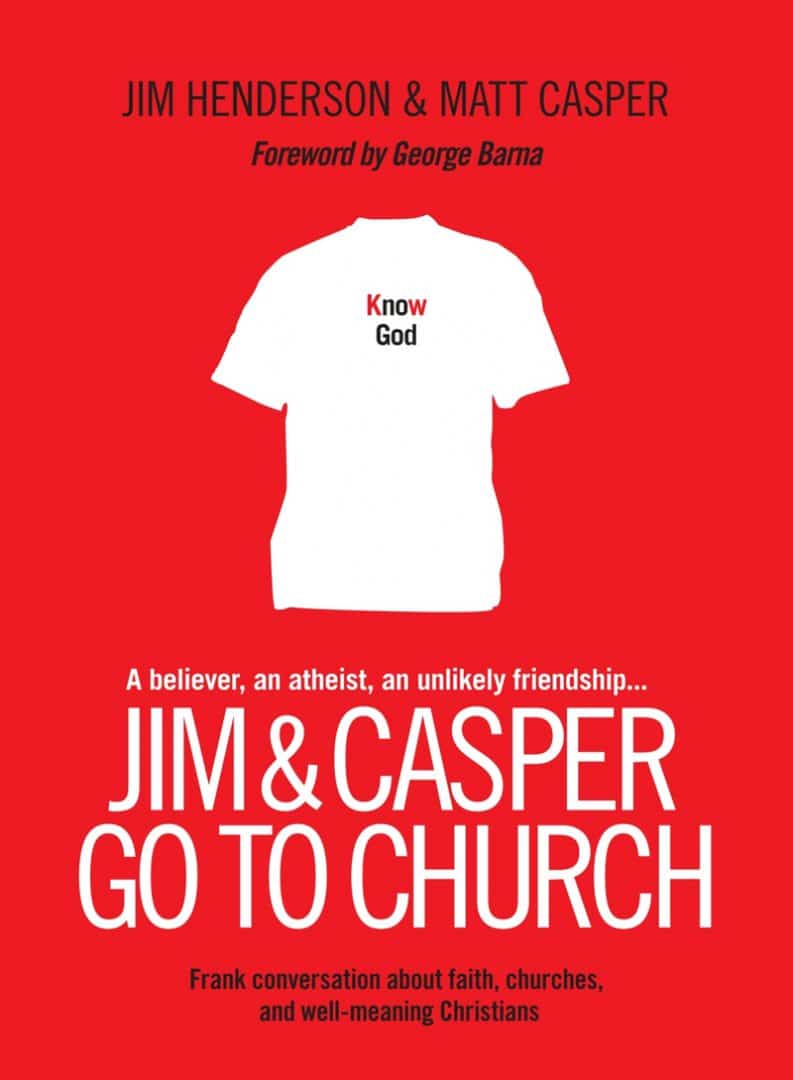
Note: I consistently read books about church. I do this primarily because God has given me the great responsibility of pastoring a church and I believe that the way in which I do this job should be well informed. However, I find that many of these books not only inspire how I pastor Creekside Bible Church, but also the way in which I approach church on a personal level. I realize that many who read my blog are not in leadership positions in a church. However, I think that those who fall into this category would benefit greatly from reading a book about church every now and then. Doing so can help you understand what the Bible says about church, how you should approach your involvement in church, and what you can do to make your church better. Thus, I will periodically review books on this blog. I realize that most won’t read about church avidly, but I hope that my reviews will remind you that you should periodically (if you are part of the church) and will help you see if certain books are of interest to you.
the Book
Jim and Casper Go To Church by Jim Henderson & Matt Casper
the Summary
This book tells of the experiences of two men visiting twelve churches of various sizes and traditions. One of the men, Matt Casper, is an atheist. The book primarily focuses on his perspective about the way in which the twelve churches visited conduct their weekly service. Jim Henderson, a long time minister, writes the majority of the book; however, he limits the interjections of his own conclusions, preferring to focus on the opinions and thoughts of Casper. Much of the book is a recount of the conversations the two men have directly following their experiences at the various churches.
Throughout the book there are pages devoted to prescribing ways of “defending the space.” The “space,” according to the back cover of the book, is “relational space for authentic, respectful dialogue and friendship with nonbelievers.” This theme is a focus of Henderson’s as he is the co-founder and director of Off The Map, a non-profit organization “focused on reinventing evangelism by encouraging Christians to connect with people in small, ordinary, and doable ways.” Besides the dedicated pages, this theme emerges often throughout the book.
The overriding goal of the book seems to be to help Christians perceive how non-believers understand and interpret the way the church communicates (words, music, technology, etc.).
the Quotes
“I silently wondered why we Christians seem to believe that it’s our God-given duty to appear unusually happy – especially at church.” – Henderson
“What do you think this enlightened, impassioned, and above all, humble carpenter from Galilee would say about Plexiglas dunking tanks, millionaire pastors, camera cranes, and music coming straight outta Branson? Is this what Jesus had in mind for church?” – Casper
“It seems like churches are not communities at all because ther’s hardly anybody ‘communing’ with each other. There’s a pastor talking at them, and occasionally they bow their heads while he prays at, or for, them.” – Casper
“It gives me a chance to just see for myself what a church is all about before I’m told so by some brochure.” – Casper on not receiving a bulletin
“Aren’t you guys in the ‘love your neighbor as yourself’ business? I mean it. No other group out there preaches togetherness more than the church, and no other group out there is as obviously segregated.” – Casper
“…for two thousand years, [the church] has itself essentially resisted the very change it preaches about. It makes a good case for being an atheist if the very people who claim to be serving God and obeying him aren’t doing what they say he’s telling them to do.” – Casper
the Good
The most valuable aspect of the book is a question that Henderson, in the last chapter, tells us Casper asked after each church experience, “Is this what Jesus told you guys to do?” The implied answer is, of course, no. Casper concludes that based on attendance at weekly church services one would have to conclude that “Jesus’ number one priority was that Christians invest the very best of their energy and their money into putting on a huge church service – a killer show, as it were.”
It is sad that it takes an atheist to point this out to us. It is sad that it takes an atheist to remind us that churches should make an effort to do things in a way that honors Jesus’ original intent for the organization in which he is the head. Along these same lines, it is sad that it takes an atheist to point out the inconsistencies between what we preach and what we practice on Sunday morning. Why do Christians make church all about them while preaching sacrificial love? Why do we talk so freely about helping the poor, but put most of our money towards putting on a show? There is no good answer to these questions, but the questions themselves should spur us on towards greater good. People who are followers of Jesus and part of church should constantly be asking themselves if what they are doing is what Jesus would want them to do. This must not only apply to individual’s lives, but also to the practices of the church.
I also found this book valuable in how it reminds readers that the way in which churches communicate is important to outsiders. The language we use must be accurate, understandable, and honest if we are to expect unbelievers to respect our church and/or to visit a second time. It is easy for churches to communicate effectively to Christians who have been in the church since their youth; it is difficult for churches to communicate effectively to people who have little to no church experience. Statistically America is becoming more and more un-churched. This means that churches, if they want people to come back after the first visit, must be more and more careful to communicate in a way that connects with those who have not often been in church.
the Bad
I struggled with two aspects of this book. First, the thoughts reflected in it are that of one atheist. The book claims that Casper attempts to keep his personal biases out of his reflections on the churches he and Henderson visit. However, throughout the book it seems that these biases shine forth. The most explicit example of this is Casper having a great experience at a liturgical church because it reminds him of a church he sometimes attended as a child. But, beyond outright nostalgia, bias paints every aspect of the book. Let me be clear, I think it is impossible to remove our personal feelings when trying to describe the good and the bad of a church service (or anything else). Whenever we offer our thoughts on a topic they are jaded by past experiences and personal preferences. This is not a bad thing, just a true thing. Thus, at times in this book, it is hard to know what would be true of all atheists and what is only true of Casper. In the book They Like Jesus but not the Church, Dan Kimball takes a collection of conversations with non-Christians and tries to show a general consensus of how these people view Jesus and the church. This technique proved more satisfactory to me in coming to an understanding of people’s views.
Secondly, I thought the book placed too great of an emphasis on doing church in a way that impresses outsiders. It seemed paradoxical to present the question, “Is this what Jesus told you guys to do,” while also focusing on doing church in a way that appeases atheists. While the two are not necessarily contradictory, it seems that our focus must be primarily on the first – doing things in the way that Jesus and the Bible command. One of two times Jesus uses the word “church,” he is talking about a process of helping people remove sin from their lives that is often called “church discipline.” This concept isn’t attractive to unbelievers, but is “what Jesus told” us to do. The early church did many things that were incorrectly interpreted by unbelievers and they were thus unfairly accused of all sorts of things (cannibalism and incest included). Despite this, the church grew. The church should never make doing things in a way that works or is liked by unbelievers its goal or aim; it should always be focused first on doing things in a way that God desires.
the Conclusion
This book is not near the top of my list of favorite or most valuable books I have read on church. Yet, I found it interesting and worthwhile. While it only offers the perspective of one person, that is one more honest perspective about church than many will ever hear from an “outsider.” Casper works hard to give an honest account and his thoughts are valuable. It reminds us of the importance of communicating well and doing church in a way that honors the one we follow.

